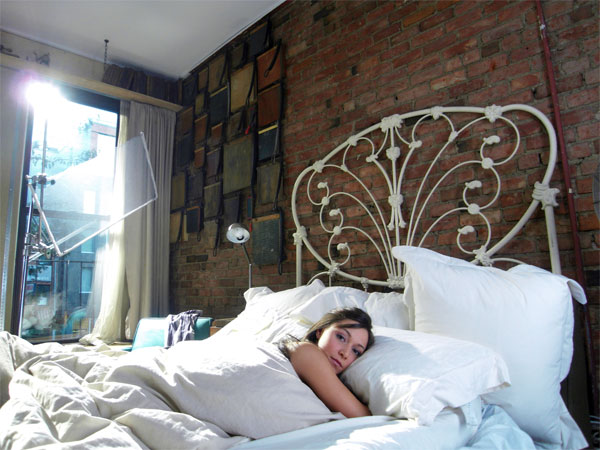
This post is much longer than usual but is so raw, eloquent, and well worth taking the time to read. Leslie Rott is a 23 year-old lupus patient and grad student at University of Michigan. She’s the creator of Getting Closer To Myself blog. Take it away Leslie:
I have been struggling for a while, feeling like I needed to write a post about sex/relationships, but it never felt like the right time, until I read the book Everything Changes in which Kairol writes: “In my first two years of living with cancer, the number of men I slept with had more than doubled”.
When I read this sentence, I stopped cold. This line got to me because it is me – the same thing happened to me in my first two years of living with lupus. Well, if you go from zero sexual partners in 23 years, to one or two in just a few months, it might not seem like much, but for a straight-laced person like me, it caused quite a stir.
The way the people around me were acting, you would have thought I had murdered someone. Maybe murdered myself. But this has nothing to do with self-respect. Because the truth is, I was being judged on terms that no longer applied to me. Yes, the “old” Leslie, the “healthy” Leslie, would probably have never done any of that. But it was about feeling good in a single moment, one moment without pain was worth far more than the potential consequences of my actions. Feeling wanted, needed, loved (doubtful), and even “normal,” was something that I yearned for, and that was the only place I found it. To be held, to not feel alone, to feel like someone else in the world other than myself and my immediate family had a stake in all this, that was what it was about.
Illness has, at times, clouded my judgment and filled me with a sense of urgency that I never had before. Because the fact is, illness is a major head-trip. If you’re not fully secure in who you are as a person, there’s no telling what will happen.
Kairol quotes Wafa’a, a young adult cancer patient: “Cancer makes you feel really alone, and you just want to be held and feel loved. Or maybe it is a coincidence, and I’d just really want those things right now even without cancer, and it’s just part of being twenty-four. I want to matter to someone else. I want to feel like someone is thinking about me. Since being sick, I’m just looking for a bit of stability, and I think maybe having someone else to love me is it. You can’t control life so maybe you can just date and control that, but you can’t control that either.”
When I first got really sick and no one could figure out what was wrong with me, I didn’t tell anyone, but the biggest thing I was concerned about was that I was going to die a virgin. And somehow, in my mind, this singular event seemed insurmountable.
I can only imagine the reaction had I ever expressed this fear out loud. It would probably have gone over as well as telling my rheumatologist that I didn’t want to be on prednisone because it made me fat and moody. A 40-something man certainly can’t understand where a 20-something woman is coming from in these terms – to him it makes me seem shallow, ridiculous, and heaven forbid, noncompliant (probably the worst thing in the world a patient can be labeled). Because apparently, when you are sick, you aren’t supposed to think about “normal” person things. You’re supposed to transcend all that, and see that life as a mere mortal is fleeting and fragile, not something that should be squandered away worrying about the things you haven’t accomplished. Just like I didn’t think anyone around me would understand that the fear of death was overshadowed by the fear of not having lived. So, when, in a moment of no thought, I decided to end my relationship with celibacy and make sure that dying a virgin wasn’t a possibility, it’s no wonder that the people in my life, the healthy people, didn’t understand the urgency and all of the emotional work that went with it. It wasn’t about sex. It was about what came with it, what came after, and unfortunately, what was very short-lived.
I used to be the one that people envied for having my shit together. Now I’m the one fighting for control of just about everything. I don’t feel like the envied one anymore. And if the people in my life haven’t realized that this isn’t about morals or character, that it isn’t about being that kind of girl, then they can get the hell out. Because if you haven’t been sick, I don’t really think it’s your place to judge.
I think when healthy people hear about a sick person engaging in behavior uncharacteristic for them, the first thing that comes to mind is risk taking. Oh, that person is sick or dying, they feel like they have nothing left to lose. But it’s not about taking risks. It’s about living, and attempting to feel like you matter, like life is worth fighting for.
It wasn’t until I turned to a complete stranger for support that anyone in my life realized that I needed anything at all. And this is my own doing, because I was scared and confused, didn’t know what to ask for, and didn’t really want to have to ask for anything at all. But the truly ironic part is that it wasn’t until this incident that anyone in my life realized how unhappy, how depressed, how scared, and how alone I had felt for nearly two years, and how truly nonexistent my coping had become.
There were a few people in my life who applauded these efforts, who said it was about damn time. But what I really needed, was something that I rarely got, which I think could only come from other sick people, is to understand that it wasn’t about sex. It was about having lived my life a certain way for 23 years, to get burned by illness, and to be left feeling like I needed to refigure things out. So I started with the new, with the untouched experiences in my old life that had hung over my head for years, thinking maybe that’s what was missing. And what I realized, is that what was really missing was a part of myself that no one, other than myself, could give me.
Kairol talks about what it’s like to find love in the face of cancer. Finding love is hard enough. Finding love in the face of illness is definitely something to envy and hold dear, if and when you find it.
Another patient in Everything Changes says: “Be a little selfish and don’t feel guilty. Tell people how you feel and be open. Remember to tell people that you love them. Don’t play games, don’t be fake, don’t try to be tough all the time.”
Kairol herself, says: “[T]he most remarkable cancer patients are not those who are climbing mountains but those who have found a way to climb into bed at night and be honest with themselves about staring fear in the face”.
More than anything, “Everything Changes” made me realize that I have yet to really grieve about my illnesses. I tried to stay strong for everyone else around me that I forgot that maybe being strong for myself means not being strong at all. Maybe some of us never come to terms with illness. Maybe we remain forever wondering why we picked the short straw, or why our genetic makeup failed us. What I realize now is that anger – at ourselves, at G-d, at the world – is a necessary part of this process.
Kairol writes “[If] a broken heart caused cancer [or lupus, or any other disease] […]”, then all my friends would have understood my situation far better than they have. If illness could be explained in terms that even healthy people could really, deeply, intimately understand, well, maybe none of this would have happened in the first place. But I am attempting to live with no regrets, and to not beat myself up for the mistakes, er, I mean choices, I have made.
Are you as blown away by Leslie as I am? What parts of her writing could you relate to? Has your intimate life changed dramatically since being diagnosed with an illness?
For practical tips and resources on having sex with illness read Everything Changes: The Insider’s Guide to Cancer in Your 20s and 30s.



![]()
![]()


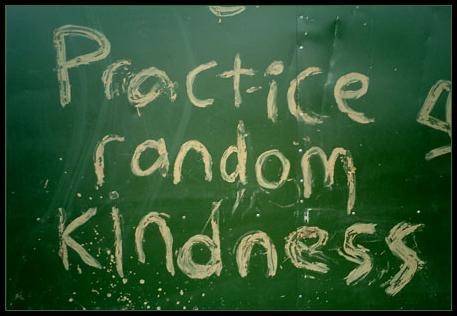
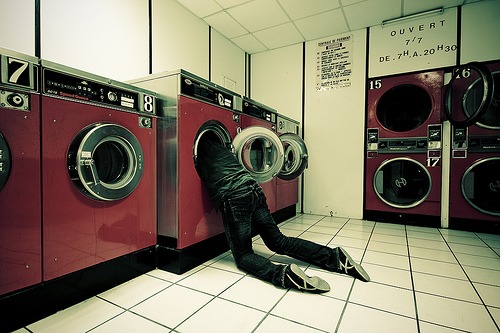

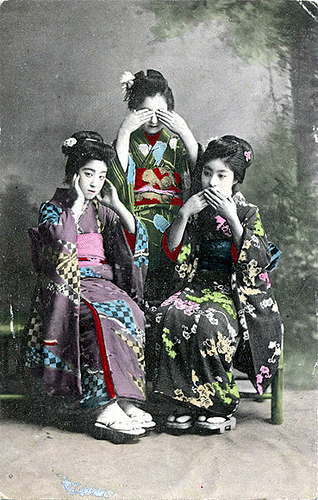
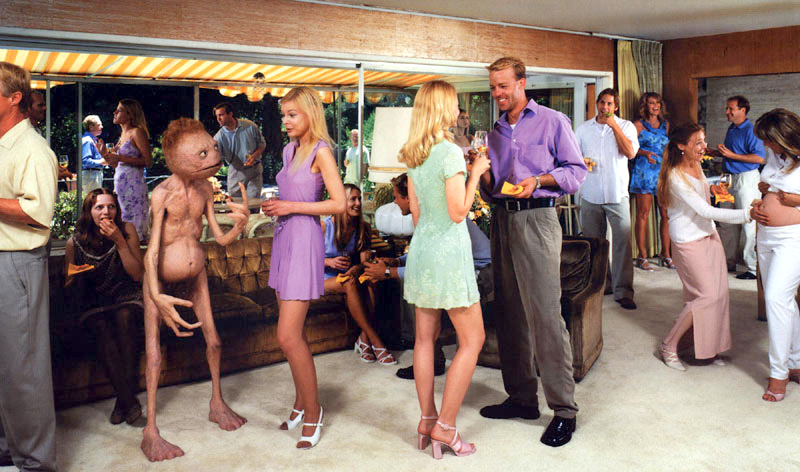

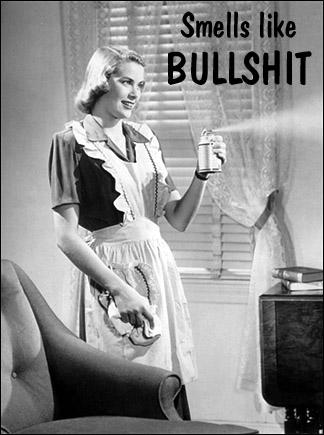
 “Everything Changes is, without doubt, the most forthright, emotionally sophisticated, and plain-old valuable book of its kind I've seen.”
“Everything Changes is, without doubt, the most forthright, emotionally sophisticated, and plain-old valuable book of its kind I've seen.”












